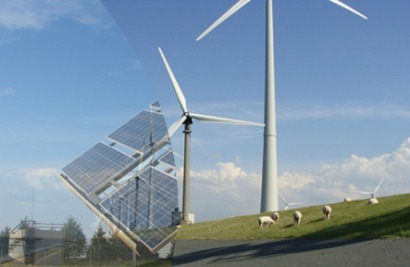
The Energy Day event focused on questions that are crucial for decision-makers and investors such as: What share of a country’s energy mix can be supplied by renewable energy? Where are the resources located? What is the most effective combination of technologies? How much investment is required? Is there a market large enough for creating a supply chain?
Speakers included H.E. Elizabeth Dipuo Peters, Minister of Energy, South Africa; H.E. Martin Lidegaard, Minister for Climate, Energy and Building, Denmark; Dr. Altino Ventura, Secretary of Planning and Energy Development, Ministry of Mines and Energy, Brazil; Dr. Sultan Ahmed Al Jaber, Assistant Minister of Foreign Affairs and Special Envoy for Energy and Climate Change, United Arab Emirates; Dr. Karsten Sach, Deputy Director-General for International Cooperation, Federal Ministry for Environment, Nature Conservation and Nuclear Safety, Germany; Dr Victorio Oxilia Davalos, Executive Secretary of the Latin American Energy Organization (OLADE); and Mr. Steve Sawyer, Secretary-General, Global Wind Energy Council.
During the event, Dr. Sultan Ahmed Al Jaber announced the commissioning of a UAE Solar Atlas by the Masdar Institute of Science and Technology jointly with IRENA and other partners. The data on solar energy will be freely available online from early 2013 onwards for use by governments and by the private sector when assessing the technical feasibility of any proposed renewable energy project.
The high-level exchange of views was followed by the signature of a partnership agreement between IRENA and OLADE that will enhance mapping of renewable energy resources in the region.
The Global Atlas, launched jointly by IRENA and the Clean Energy Ministerial, is the largest ever initiative undertaken to assess the renewable energy potentials on a global scale. It initially covers wind and solar and is to progressively extend to other renewable energy resources.
The Global Atlas is an interactive internet-based mapping platform, designed to raise awareness of technology opportunities, limit the financial risk for countries willing to further investigate their technical potentials, and support companies willing to invest in a new market. It provides the initial elements necessary to investigate renewable energy potentials before initiating detailed national investigations and building human capacities.
Citizen-driven energy savings
At a special session of the Energy Day in the context of Rio+20, experts also exchanged knowledge and experience to enhance energy efficiency and renewable energy for making cities sustainable. The session was moderated by Dolf Gielen, Director, IRENA Innovation and Technology Centre, International Renewable Energy Agency. The discussion centered on action that can be taken to drive renewable energy into cities and involved Sigurd Heiberg, Chairman, UNECE Committee on Sustainable Energy; Jim Walker, Co-founder, The Climate Group; Josh Henretig, Senior Manager Environmental Sustainability, Microsoft; RA Rajeev, Commissioner, Thane Municipal Corporation, Thane City (India).
Cities consume 66% to 75% of global energy use, and this share will continue to growth with an additional 1.5 billion people entering cities before 2030. The rate of urbanisation is particularly high in Asia and Africa, where urban populations will grow with 1 200 million and 450 million respectively. Although several new mega-cities will be established in the next 18 years, small-size urban towns (less than 0.5 million population) will be the fastest growing segment (UN 2004).
Sustainable energy has an impact on people’s quality of life. It can reduce local air pollution, fuel economic growth, improve housing, support the development of sustainable transport systems, provide modern energy sources and employment opportunities to those that are living in slums, and reduce the projected growth in urban solid waste.
The large quantities and inefficient use of energy in cities provide tremendous opportunities for the introduction of sustainable energy. Although the specific opportunities highly depend on local conditions, such as climatic and infrastructural conditions, renewable resource availability, urban design, existing building stock, and financial and investment climates, there are several possible categories and combinations of activities that cities can use to introduce sustainable energy:
“City leaders can directly influence urban planning projects, or instigate local policies to promote sustainable energy. In those cases where are directly involved in the provision of electricity or heat to urban dwellings, they also have access to valuable data that can be used for forward planning, balancing of energy supply and demand, and improving energy efficiency,” explained IRENA in a recent press statement.
For additional information:

